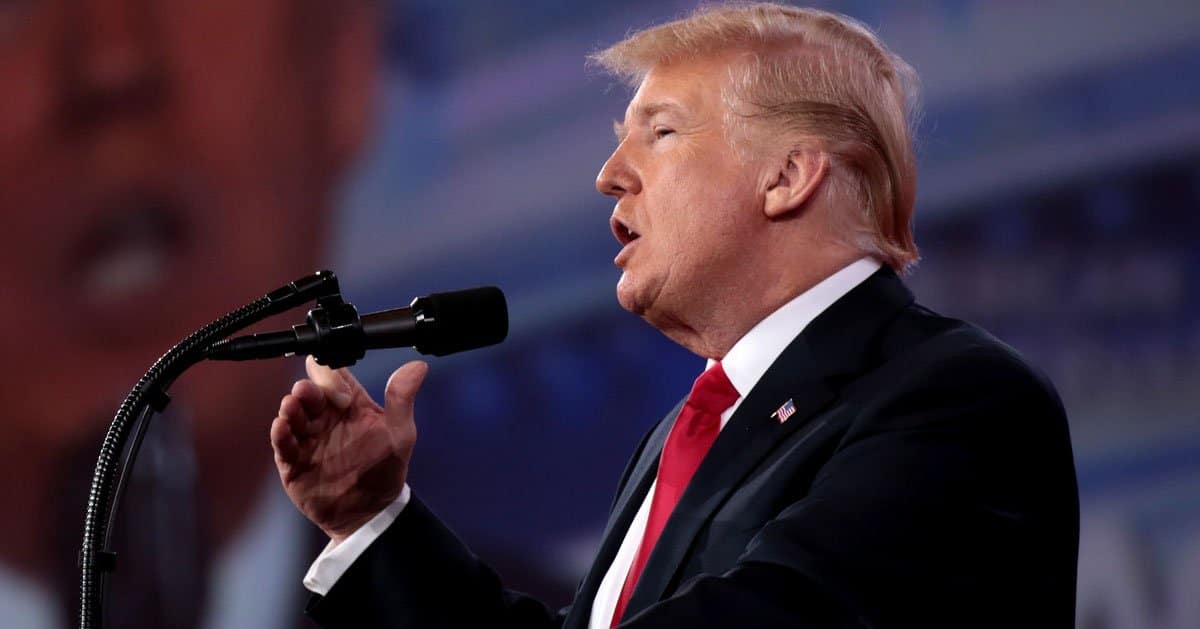






Florida's bold step to scrap school vaccine rules has sparked a national buzz, with even President Trump weighing in on the delicate balance between health and freedom.
On Wednesday, Florida officials unveiled plans to remove all student vaccine requirements, drawing both applause and concern from across the political spectrum.
Governor Ron DeSantis and Surgeon General Joseph Ladapo led the charge, announcing the initiative that targets longstanding mandates for diseases like polio and measles.
Ladapo plans to repeal some mandates directly through the Department of Health, while others will need legislative approval to vanish completely.
Currently, Florida insists on shots for diphtheria, rubella, pertussis, mumps, tetanus, and other threats before kids can hit the classroom.
Yet parents already have an out, claiming religious exemptions to sidestep these requirements without much fuss.
Every state in the union, plus D.C., enforces similar vaccine rules for school attendance, making Florida's move a potential trailblazer.
Meanwhile, childhood vaccination rates have dipped nationwide, raising eyebrows about public health trends in recent years.
The federal government, under Health and Human Services Secretary Robert F. Kennedy Jr., recently pulled the COVID-19 shot from recommendations for healthy youngsters.
Ladapo didn't mince words, branding the COVID-19 vaccine as "poison" in his fiery critique.
"All of them. Every last one of them is wrong and drips with disdain and slavery," Ladapo declared about vaccine mandates.
It's a refreshingly straightforward take in an era where government overreach often masquerades as concern, reminding us that true health policy respects individual choice over coercion.
"Vaccine mandates are wrong and immoral," Ladapo asserted, emphasizing personal liberty in medical decisions.
While that sentiment hits home for those weary of bureaucratic meddling, it also opens doors to thoughtful debate on protecting vulnerable communities without trampling rights.
"Who am I as a government or anyone else, who am I as a man standing here now, to tell you what you should put in your body? I don’t have that right," Ladapo continued.
His words echo a conservative ethos of limited government, a polite nudge that perhaps we've let experts dictate too much in our lives lately.
"You want to put whatever different vaccines in your body, God bless you. I hope you make an informed decision," Ladapo said.
"You don’t want to put whatever vaccines in your body, God bless you. I hope you make an informed decision. That’s how it should be," he added.
Two days later, on Friday, President Trump entered the fray with his trademark candor, praising vaccines that deliver results.
"I think we have to be very careful. You have some vaccines that are so amazing. The polio vaccine, I happen to think, is amazing," Trump stated.
His endorsement cuts through the noise, highlighting how proven tools like the polio shot have saved countless lives without the controversy that plagues newer ones.
"You have some vaccines that are so incredible, and I think you have to be very careful when you say that some people don't have to be vaccinated. It's a very tough position … it's a tough stance," Trump remarked.
Here, the president strikes an empathetic chord, acknowledging the complexity without bowing to the progressive push for one-size-fits-all policies that ignore real-world nuances.
"Vaccines that work, they just pure and simple work," Trump affirmed, underscoring a no-nonsense view on medical successes.
It's a witty reminder that not all shots are created equal, and dismissing mandates wholesale might overlook gems that have eradicated horrors like smallpox.
"They're not controversial at all. And I think those vaccines should be used; otherwise, some people are going to catch it, and they endanger other people," Trump explained.
"And when you don't have controversy at all, I think people should take them," he concluded.
Trump's comments offer a balanced conservative perspective, supporting innovation while cautioning against extremes that could harm the herd immunity we've built over decades.
In Florida's case, this shift could empower families to decide, free from state edicts that sometimes feel more like control than care.
Yet with declining vaccination rates, it's a thoughtful zinger to woke overconfidence: personal freedom thrives best when paired with responsibility, ensuring no one pays the price for another's choices.

